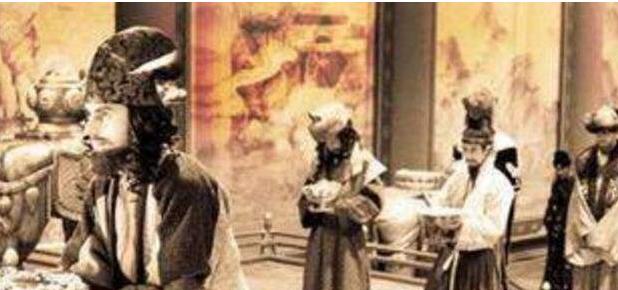The long river of history is running endlessly, there are calm waves, there are also waves, let Xiaobian take you into history and understand history.

According to folklore, during the Xia Dynasty, a poor woodcutter found a large piece of white fat when cutting down a tree, and did not dare to use it privately, so he offered it to Dayu to make candles. In feudal society, the diet of people of different ranks had strict distinctions and hierarchical rules, and those in the lower ranks, even if they got something that did not belong to their own use, must be presented to the superior, otherwise it was trespassing. "Poetry" Yun: "Once there was a soup, from the other side of the Qiang, do not dare not come to enjoy." "At the beginning of the Shang Dynasty, all the princes and tribal leaders had to pay tribute with the best items when they saw the Son of Heaven. Tributes include exquisite embroidery, treasure play beads and jade, and local products, which are exclusively for the heavenly son to enjoy. In the Han Dynasty, this practice developed into a ritual system.
In the feudal era, in addition to factors such as the quality of the products and the difficulty of seeking treasures, even the fruits and vegetables grew particularly large, which was not something that ordinary people could enjoy, and must be dedicated to the emperor. The Taiping Guangji records that during the reign of Emperor Gaozong of Tang, the governor of Yizhou, Shi Chongzhen, had a large orange in his official office, and wanted to present it to the emperor, but later found that there was a difference, and when he opened it, there was a red snake coiled in the orange. During the reign of Emperor Dezong of Tang, Jiannan Xichuan Jiedu made Wei Gao see a large mandarin and wanted to enter the emperor, and there were doctors present at the time, advising him not to engage recklessly. Wei Gao let people cut open to see that there was a two-headed snake inside the orange. Regardless of the authenticity of the story, it can be seen from it that the scope of the emperor's special offering in ancient times was extensive.
The special offerings of the Ming Dynasty were the most extravagant, and even the hand paper used by the emperor was woven from the wild silkworm cocoons of Sichuan, and the special offerings were presented and discarded once they were used. Later, some emperors felt that this was too wasteful, and once ordered the special supply of silk paper to be stopped, but he heard that this would cut off the livelihood of some weavers in central Sichuan, and with an excuse to stimulate the local economy, he continued to use it with peace of mind. According to the Ming Dynasty Xie Zhaochun's "Five Miscellaneous Tricks", during the ming dynasty, the court was fashionable to enjoy the anti-seasonal vegetables, fruits and flowers, and specially had people burn fires in the cellar in winter to create a warm room environment, planting yellow sprouts, leeks, watermelons, and peony flowers, as a special offering. Due to the huge cost, at the end of the Shenzong Dynasty, the Inner Government was in a state of disarray and had to embezzle Jibian silver to fill the deficit.
Well, today's sharing ends here, and we'll see you next time